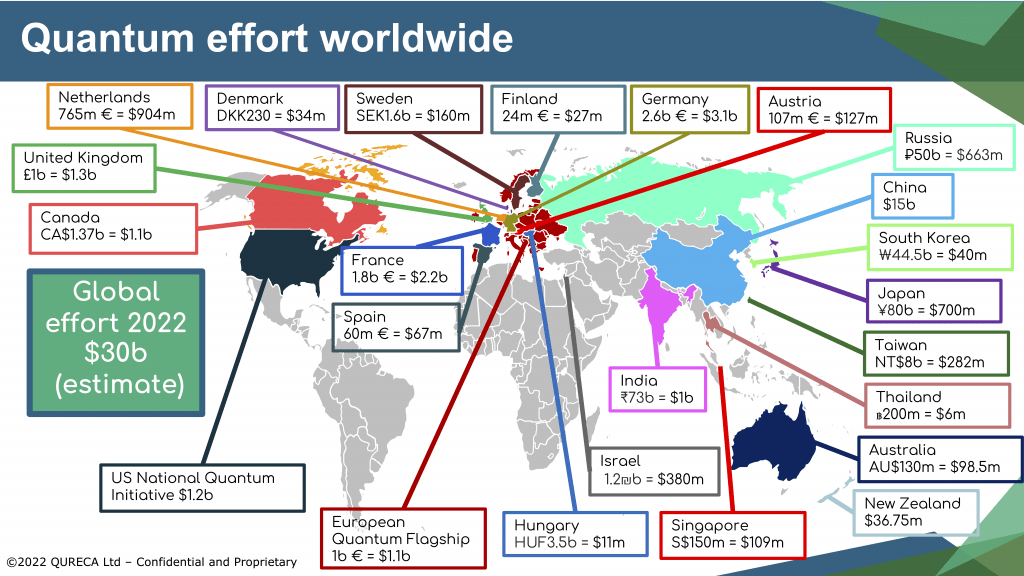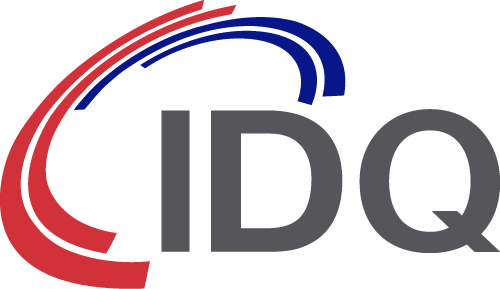Quantum Computing Review Q1 2022
Welcome to our Q1 2022 quantum review. As we move further into the quantum decade, investment and advancement in quantum technologies continues apace. What follows is just a small selection of the quantum stories making the news in recent months.
The countdown to quantum
In March the Cloud Security Alliance (CSA) started its “countdown to quantum”. April 14, 2030 has been set as the date by which the CSA estimates a quantum computer will be able to break today’s cybersecurity infrastructure. The CSA website now features a Y2Q countdown clock as a sober reminder of the imminent threat posed by quantum computing. Somewhat dramatically, the CSA has nicknamed it the countdown to quantum destruction.

A matter of principle
Earlier in the year, the World Economic Forum published an insight report into Quantum Computing Governance Principles. The report recognises “there is a need for global guidelines to assess and manage the opportunities and risks of quantum computing”.
- Transformative capabilities
- Access to hardware infrastructure
- Open invitation
- Creating awareness
- Workforce development
- Cybersecurity
- Privacy
- Standardization
- Sustainability

A qubit by any other name
According to a recent research blog by Microsoft, researchers into quantum computing are frequently frustrated by the lack of scalability inherent in current computing models. Today’s quantum computers are built on a variety of qubit types, but none of them are scalable to the point that quantum computers make a substantial leap forward.
So, Microsoft have taken the decision to pursue a different approach and utilise topological qubits. Topological qubits are (at least in theory) more stable than other qubits and should make scale more viable.
Movers, shakers and money-makers
As the quantum technology marketplace expands, it undergoes a period of dynamic investment and merger activity. One of the prominent names in the fledgeling industry has been Rigetti Computing, and they made the headlines again in March. In what is described as a Business Combination with Supernova Partners Acquisition Company II Ltd, Rigetti received circa $260million. The company plans to use the proceeds to accelerate its development of future generations of quantum processors and to expand its operations.
Not to be outdone by the private sector, a number of governments announced significant investments in quantum technologies in Q1. France announced it was to invest over €70million in a new National Quantum Computing Platform.
At the same time, Germany is looking to advance its quantum computing roadmap with the introduction of QuaST – the Quantum-Enabling Services and Tools for Industrial Applications. The consortium is designed to facilitate rapid adoption of quantum technologies and has already attracted €5.5million in funding.
Still in Germany, the Federal Ministry of Education and research has announced €16milion in funding for a project called PhotonQ. The project will see a group of seven academic and commercial institutions working to develop a range of photonic technologies, including deterministic photon sources, scalable silicon photonic circuits and novel single-photon detectors. Finally, 25 German research institutions and companies are working on the QSolid project to build a quantum computer with improved error rates. The five-year project has a budget of over €76million.
This handy graphic, courtesy of QURECA, summarises the main programs in place across the world.

Other News
In January, Capgemini announced it was launching a dedicated quantum lab and signed an agreement with IBM to advance industry applications of quantum computing.
In February, IonQ announced its latest quantum computer (IonQ Aria) had achieved a record 20 algorithmic qubits; reinforcing its claim to be the most powerful quantum computer in the industry.
In March, HSBC also announced a partnership with IBM to explore further applications of quantum computing in the financial services marketplace.
IDQ in the news:
IDQ establishes a centre of competence in quantum communications in Austria


